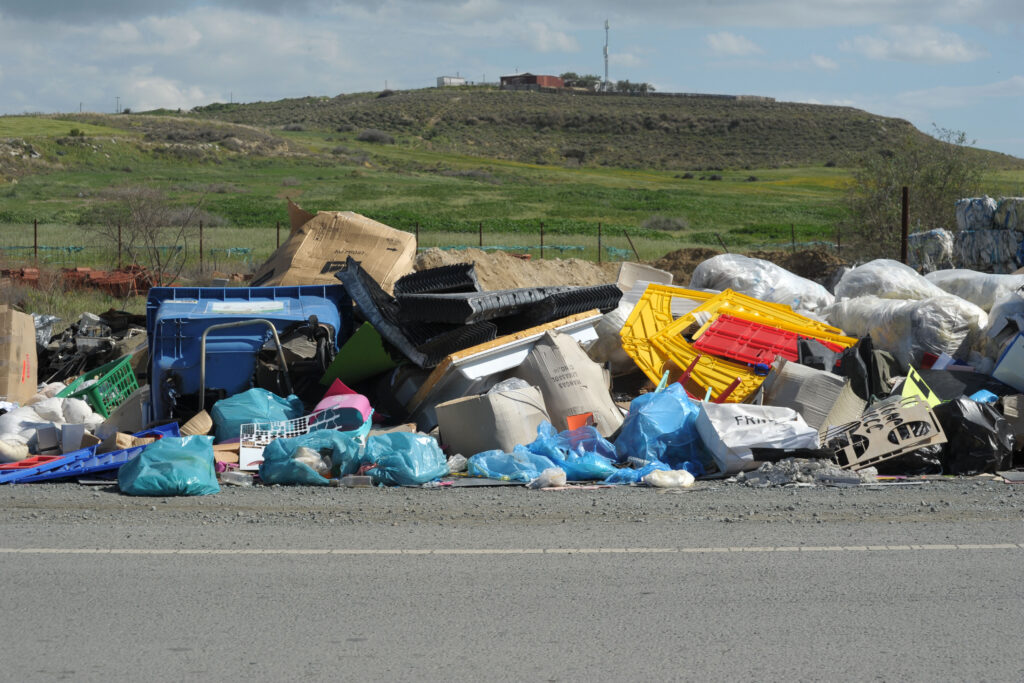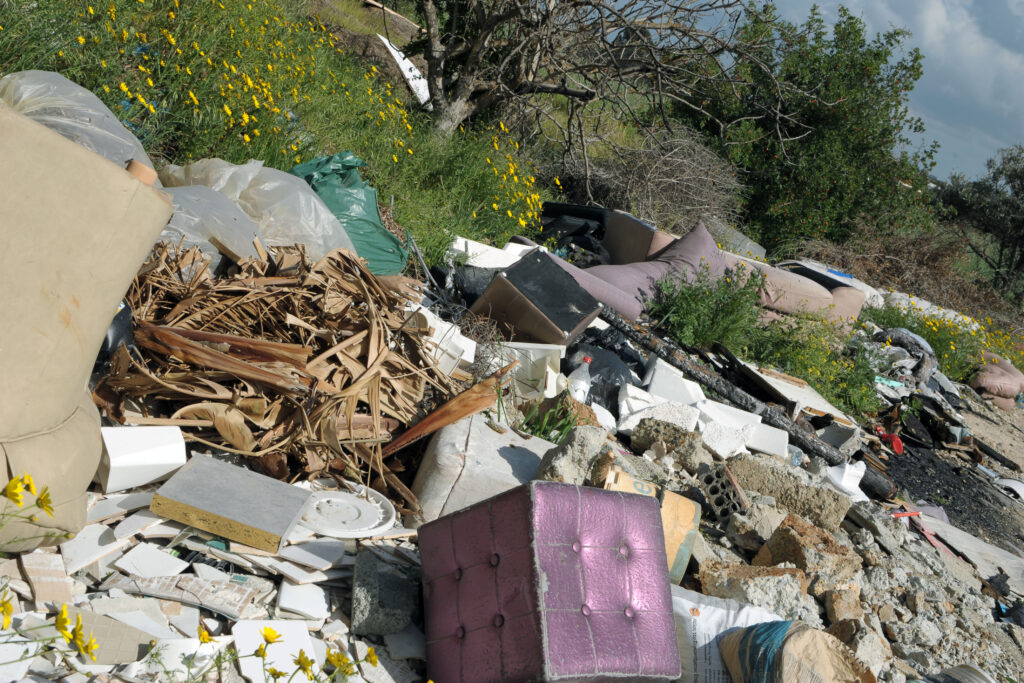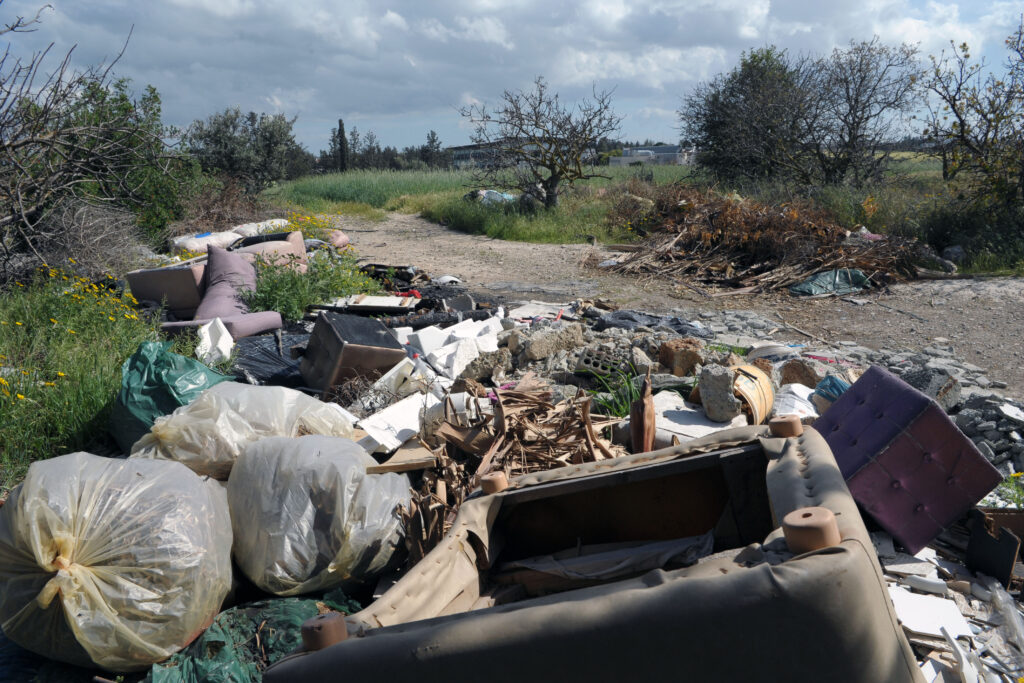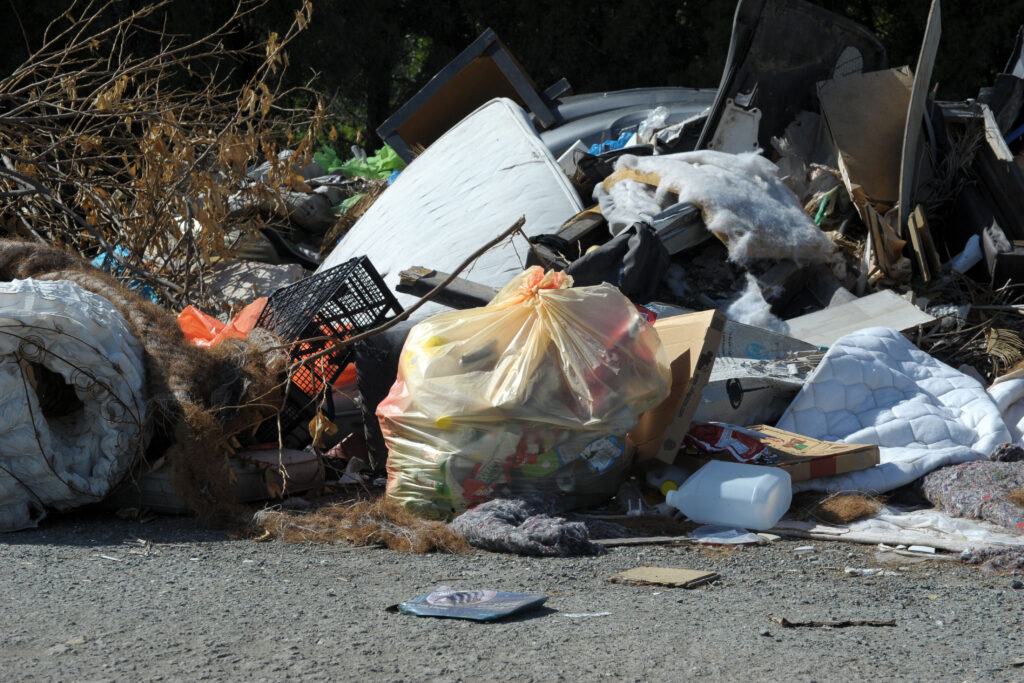Filenews 25 May 2025 - by Angelos Nicolaou
The European Commission has decided to refer Cyprus again to the Court of Justice of the European Union (CJEU), this time requesting the imposition of financial sanctions for non-compliance with a previous ruling of the Court of Justice regarding the Landfill Directive. The case concerns the landfills in Kotsiatis (Nicosia) and Vati (Limassol), which, despite being shut down six years ago, have not yet been restored as required by European legislation. The two sites were permanently closed by decision of the previous government in 2019. However, even though decisions were taken, and even contracts were signed in some cases, for their rehabilitation and care, it did not proceed as expected, for reasons that should be examined.
The Commission stresses that Cyprus has failed to implement the 2013 CJEU ruling (case C-412/12), while it is noted that it has repeatedly postponed compliance timelines. These outstanding issues continue to endanger public health and the environment, according to European authorities.
The Ministry of Agriculture, Rural Development and Environment (YGAAP) reiterated that it has already implemented a comprehensive plan for the management and restoration of uncontrolled waste disposal sites (landfills) since August 2024. The plan, approved by the Council of Ministers, includes a rigorous work schedule in cooperation with the Water Development Department and led by the European Commission-funded JASPERS partnership, which provides advice on strategies and projects that contribute to a greener, more interconnected and more innovative Europe.
According to the Ministry, work on the Kotsiatis landfill and the 23 landfills in Nicosia are in progress, with the restoration expected to be completed by the end of 2026. In Limassol, corresponding interventions are planned with restoration works starting in 2025 and being completed in 2029. According to the authorities, there was a delay in the publication of the relevant tenders due to technical problems related to neighbouring sewage tanks, which were deemed necessary to be included in the same restoration project.
The Ministry assured that the approved plan is being followed faithfully and that Cyprus will continue to inform the Commission of progress, with the aim of putting an end to the infringement and avoiding the imposition of financial penalties.
The monitoring of the matter by the Audit Service of the Republic is also in progress, an executive of which told "F" that official explanations will be requested from the competent authorities for the delay in compliance with European legislation, as well as information on the additional measures planned, in order to avoid the imposition of fines. The Audit Service had already pointed out in 2011 the risk of fines being imposed by the EU due to the prolonged operation of landfills and their non-restoration, stressing that these problems should have been addressed in the context of a national strategy.
If the CJEU finds the infringement, Cyprus may be required to pay significant fines, amounting to thousands of euros per day, until full compliance is achieved. The amount of penalties will be determined based on the severity and duration of the violation, as well as the state's ability to comply promptly.
The EU is taking all appropriate measures for the environmental compliance of its member states, especially in the waste sector, where integrated solutions combining recycling, recovery and landfill reduction are promoted. Cyprus is already under surveillance for two more cases of violation of European waste legislation – one for improper pre-treatment of waste and one for failing to meet targets related to the management of packaging waste and electronic equipment. The European Commission has called on Cyprus to speed up the necessary actions.
Developments are expected in the immediate future, both on a technocratic and political level, as Nicosia is called upon to prove in practice the progress it invokes, before the final sanctions are imposed by the CJEU.

>Court of Justice of the EU: Cyprus faces heavy fines for non-compliance with waste directives
The European Commission has decided to refer Cyprus to the CJEU, holding the country accountable for failing to comply with a European directive on landfilling, as well as for failing to comply with a previous Court ruling in 2013. The Landfill Directive lays down requirements for landfills in order to avoid adverse impacts on human health, water, soil and air.
Following this decision, the Commission sent a letter of formal notice to Cyprus under Article 260 of the Treaty on the Functioning of the EU on 28 April 2017. The case concerns two landfills – in Vati Limassol and Kotsiatis, Nicosia – which have been deemed incompatible with European legislation for more than a decade. Although Cyprus has discontinued their use, it has not proceeded either to close or restore them, as required by the European Directive 1999/31/EC.
Although, the European Commission notes, no waste has been sent to these landfills for more than six years, it has not yet been remedied or closed, as required by the Landfill Directive.
According to the Commission, the continued abandonment of these sites poses risks to public health and the environment. In addition, the Cypriot authorities have repeatedly delayed the implementation of the envisaged measures, effectively violating their obligations under Community legislation. As a result, landfills continue to pose a risk to human health and the environment.
The European Commission is now asking the Court of Justice to impose economic sanctions against Cyprus. The new appeal is part of a broader framework of controls and pressure by the Commission on the Republic of Cyprus for its environmental policy. Two other infringement proceedings are already pending:
● The first concerns the inadequate treatment of waste before it is sent to landfill.
● The second relates to the failure to meet recycling targets under the Packaging and Waste Electrical and Electronic Equipment Directive.

The EU implements policies aimed at reducing landfill and boosting recycling, considering landfill as the last and least desirable solution for waste management. Landfill, according to European authorities, can cause serious consequences, from leaks polluting groundwater to the release of methane, a powerful greenhouse gas. In addition, when recyclable waste ends up in landfills, the EU's circular economy loses valuable materials.
EU waste policies have led to significant improvements, as they promote innovation through separate collection and recycling of waste, limit the use of landfill and incentivise a change in consumer behaviour. The Waste Framework Directive sets out a number of basic principles for waste management and establishes the waste hierarchy in the EU. According to this hierarchy, the treatment of waste should follow the following stages: prevention, reuse, recycling, recovery, disposal. Landfill is the least preferred option and should be limited to the minimum necessary. Under EU rules, landfilling of waste should be phased out and, where unavoidable, adequately controlled to ensure that it is safe for human health and the environment. According to the directive, only safe and controlled landfill activities should be carried out in Europe.

In September, the tender for the restoration of landfills
Against the background of the European Commission's decision to refer Cyprus to the Court of Justice of the European Union for non-compliance with European legislation on waste management, the Christodoulides government is attempting to convince for its commitment to a realistic and holistic action plan. With the approval of the Council of Ministers in August 2024, the Ministry of Foreign Affairs implements a plan that provides for the creation of a mixed and separately collected waste treatment network, the upgrade of existing infrastructure and the complete restoration of the Uncontrolled Waste Disposal Sites (Landfills) that are in an operational or semi-inactive state. With regard to the restoration of the 71 landfills in the districts of Nicosia and Limassol, the Republic of Cyprus informed the European Commission in September 2024 about the actions it is promoting for this purpose, with a specific timetable that it adheres to.
The Water Development Department has already begun construction works for the restoration of 24 landfills in the Nicosia district, including the Kotsiatis landfill, which are expected to be completed within 2026. At the same time, in the Limassol district, works for the restoration of 19 landfills are planned to start from the fourth quarter of 2025 with a completion horizon of 2027. In September, the tender for the restoration of the Vati landfill and 27 other smaller landfills will be announced through the collection of their waste in the same area. In the Limassol district, there are a total of 47 landfills. The restoration construction works are expected to begin in early 2026 and be completed towards the end of the second quarter of 2029.
Delays in the schedule were caused by the need for a combined restoration of all nine sewage tanks adjacent to the Vati landfill. For this purpose, additional studies were required for new infrastructure for the storage of sewage sludge and reclaimed water, which postponed the announcement of the relevant tender.
According to the YGAAP, the strategic planning has been supported in collaboration with the EU technical advisors JASPERS, and already in March 2025 a tender has been published for the preparation of a feasibility and feasibility study. The study will assess the suitability of the existing infrastructure, the need for new facilities in each province and the energy utilization of the residues after treatment.
At the same time, the planning for the collection and utilization of biogas from landfills and Integrated Waste Management Facilities (OEDAs) is being examined, as part of efforts to reduce greenhouse gas emissions. Preliminary estimates by the Ministry speak of the possibility of saving up to 500,000 tons of CO₂eq (carbon dioxide equivalent) in the period 2028-2030, a percentage that corresponds to a 3.8% reduction in total emissions by 2030.
With regard to the European Commission's comments on the non-transposition of points of Directive (EU) 2023/958 into national law, the Department of the Environment notes that the relevant provisions have been incorporated into a new bill on the greenhouse gas emission allowance trading system, which was submitted to the Parliament in January 2025. This directive relates to the participation of aviation in the EU's economy-wide emissions reduction target and the implementation of global market-based measures.
The government emphasizes that full compliance with EU environmental legislation is a national priority and is expected to proceed with official communication with the European Commission in the near future, in order to inform about the progress of the implementation of the plan and to ask for guidance on accelerating the procedures.

Since 2011, the warnings of the Audit Service
Serious warnings about the effects of the continued operation of landfills in Kotsiatis and Vati had been addressed by the Audit Service as early as 2011. Reports are made in 2011, 2012, 2015 and 2017. According to the findings of the Audit Service, the Republic of Cyprus had already been condemned on 18 July 2013 by the Court of Justice of the European Union for keeping the two landfills in operation and for not restoring sites that had been put out of use. Despite the new strategy that had been drawn up at the time, which provided for the termination of the operation of the landfill in Vati with the operation of the Pentakomos OEDA, the report underlined that no timetable had been set for the termination of the operation of the landfill in Kotsiatis.
The Audit Office clearly warned of the "visible risk of a fine" by the European Commission if Cyprus did not fully comply with its obligations. In addition, it expressed serious reservations about the possibility of constructing a Landfill and a treatment plant in the Nicosia district by 2018, given that until 2015 the basic design parameters had not even been determined.
The then director of the Department of the Environment reportedly assured that the closure of the two landfills was included in the Strategy for Municipal Waste Management, with specific actions foreseen. However, as he admitted, there were delays related to the operation of the Koshi OEDA and the Paphos landfill, which directly affected the implementation schedule.
The Audit Service concluded with the clear recommendation that all necessary measures should be taken immediately to terminate the operation of the Kotsiatis and Vati landfills, underlining that these measures should be an integral part of the national strategy, in order to avoid the imposition of further financial sanctions by the EU.
